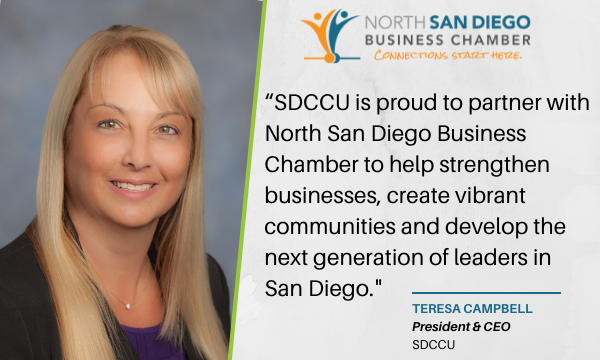Daily Business Report: Thursday, July 15, 2021
Technology Report
New wearable finger wrap can let you
power electronics even while you sleep
By Liezel Labios | UC San Diego
A new wearable device turns the touch of a finger into a source of power for small electronics and sensors. Engineers at the University of California San Diego developed a thin, flexible strip that can be worn on a fingertip and generate small amounts of electricity when a person’s finger sweats or presses on it.
What’s special about this sweat-fueled device is that it generates power even while the wearer is asleep or sitting still. This is potentially a big deal for the field of wearables because researchers have now figured out how to harness the energy that can be extracted from human sweat even when a person is not moving.
This type of device is the first of its kind, said co-first author Lu Yin, a nanoengineering Ph.D. student at the UC San Diego Jacobs School of Engineering. “Unlike other sweat-powered wearables, this one requires no exercise, no physical input from the wearer in order to be useful. This work is a step forward to making wearables more practical, convenient and accessible for the everyday person.”
The device also generates extra power from light finger presses—so activities such as typing, texting, playing the piano or tapping in Morse code can also become sources of energy.
PHOTO CAPTION: This thin, flexible strip can be worn on a fingertip and generate small amounts of electricity when a person’s finger sweats or presses on it.
California’s cannabis industry at a crossroads
CalMatters
Nearly five years after California voters approved a ballot measure championed by then-Lt. Gov. Gavin Newsom to create a legal marijuana industry, it’s run into so many challenges that state lawmakers recently approved a $100 million plan to help it stay afloat.
One of the biggest hurdles facing would-be cannabis entrepreneurs? A maze of complicated, costly procedures that has pushed license processing times to as long as four years. Cannabis businesses were originally required to obtain permanent licenses by 2019, but the bureaucratic barriers were so high that state lawmakers twice delayed the deadline — first until Jan. 1, 2020, and then until Jan. 1, 2022. Now, Gov. Gavin Newsom wants to delay that deadline by another six months.
The Newsom Administration: “Absent this extension, it is possible that a significant number of these licensees could fall out of the legal cannabis system, significantly curtailing the state’s efforts to facilitate the transition to a legal and well-regulated market.”
Downtown San Diego to get a new 22-story
residential tower that features a Target retail store
Cisterra Development has started construction of Radian in Downtown San Diego’s East Village neighborhood. Radian is a 255,000-square foot, 22-story retail and residential high-rise tower featuring 241 housing units and a new Target retail store.
Located along the southeastern corner of Ninth Avenue and G Street, the ground floor and basement level of Radian will feature a 36,000-square-foot Target store. The exterior of the existing historic Farkas Store Fixtures building will be enhanced, preserved, and incorporated into Radian’s exterior design.
Cisterra Development’s plan for the Farkas Store Fixtures façade was unanimously approved by the Save Our Heritage Organisation and the City of San Diego’s Historical Resources Board.
Radian’s residential apartments will range in size from studios to three-bedroom units and penthouse units on the top two floors. The building will include an indoor/outdoor fitness center, game room, event/dining room, business center/lounge, dog park/wash, outdoor theater and rooftop pool/hot tub area.
Trolley Palm apartments in La Mesa sold for $22.25 million
Trolley Palm, a 75-unit, garden-style apartment community in La Mesa, has been sold to local private investor ADC Real Estate Group for $22.25 million. The seller was L5 Odyssey Management LLC.
Trolley Palm is situated on 3.59 acres at 4302 Palm Ave. The property features one-bedroom floorplans averaging 754 square feet and two-bedroom floorplans averaging 925 square feet. Built in 1972, the property recently underwent an interior renovation to approximately 60 percent of units. The community also has a new leasing center, clubhouse and fitness center. Additional amenities include a swimming pool and laundry facilities. The purchaser plans to continue the renovation program for the balance of the units at the property along with additional property enhancements.
Trolley Palm is across the street from the Spring Street Trolley Station.
Allen Chitayat, Kevin Mulhern and Nate Pepper of CBRE represented the seller in the transaction.
National Frozen & Refrigerated Foods Association
convention coming to San Diego Oct. 16-19
One of the frozen and refrigerated industry’s hottest events is coming back face-to-face style. The National Frozen & Refrigerated Foods Association’s (NFRA) annual convention, where the entire frozen and refrigerated industry comes together, returns in-person Oct. 16-19 in San Diego.
The event brings together retailers, manufacturers, sales agents, logistics providers and suppliers of frozen and refrigerated foods – the only event that does so. The event focuses on connecting these distinct segments as well as highlighting new products, insights and thought leadership in the industry.
Innovation takes center stage right from the beginning. Over 50 manufacturers will have a chance to showcase their latest products at the Taste of Excellence reception on Sunday. It’s a tasty way to start the Convention – with sampling and a chance to catch up with colleagues from other companies and network with new connections.
The convention focuses on looking forward throughout the event. At Monday’s general session, attendees will see a preview of NFRA’s 2021 State of the Industry Report which highlights emerging trends and category insights.
North San Diego Business Chamber votes
new board chair and seven new officers
Stacey Hrountas, CEO of Sharp Rees-Stealy Medical Centers, has been elected chair of the North San Diego Business Chamber board of directors for 2021-2022. At Sharp Rees-Stealy, Hrountas leads a team of more than 28,000 employees dedicated to supporting more than 580 primary and specialty care physicians.
The board elected seven new officers and appointed two new Advisory Board Members that began their term July 1, 2021. Each term is three years.
New board for the 2021-2022 Term include:
Eric Cutler, chief data officer, TOOTRiS
Alicia Gwynn, president, Tony and Alicia Gwynn Foundation
Sarah Hassaine, global director of Diversity, ResMed
Jamie Lemon, general manager, Rancho Bernardo Inn
Joseph S. Leventhal, office managing partner, Dinsmore & Shohl LLP
David Shields, president, Component Surfaces
Evan Wahl, director, project management and site strategy, Catalent
New Advisory Board Members for the 2021-2022 Term are Mike Fasulo, Ret. president, Sony; and Michael Vu, assistant chief administrative officer, County of San Diego.
County to accept more than $24 million in federal
funds to address COVID-19 in high-risk areas
The Board of Supervisors has voted to accept more than $24 million in federal funds to address COVID-19 in high-risk populations and communities. The funds from the Centers for Disease Control and Prevention will be used to develop and implement strategies to improve the local COVID-19 response and prevention capacity through testing, tracing and vaccination in populations that are underserved and at high risk for COVID-19, including racial and ethnic minority groups and people living in rural communities.
The County COVID-19 Health Disparities Project, a collaboration with community partners and contracted service providers, will also help to improve public health data systems and access to health and social services, reduce health disparities and expand health equity in vulnerable populations and communities.
The board also authorized the acceptance of $4.5 million in funding from the state to expand the Community Health Worker model to work with local community groups to provide COVID-19 vaccination assistance, communications and outreach.
Sovrn Holdings acquires San Diego-based Proper Media
Sovrn Holdings Inc., a publisher-focused technology company, announced the acquisition of San Diego-based Proper Media. Proper Media combines industry-leading advertising technology with personalized managed services.
“Proper Media gives publishers access to enterprise-level technology that increases their revenue while streamlining operations and improving profitability,” said Chris Richmond, co-founder and CEO, Proper Media. “In Sovrn, we’ve found a partner that shares our view that publishers deserve better, and we now have the investment to drive further innovation in website monetization for publishers.”
“Sovrn and Proper Media share a commitment to help publishers better understand, operate and grow their business,” said Walter Knapp, CEO, Sovrn. “Programmatic Advertising is a complex challenge for publishers, and many don’t have the time, resources or expertise to best navigate these changes on their own.”
Cue Health receives regulatory approval
in India for its COVID-19 test
Cue Health Inc., a San Diego health care technology company, has received regulatory approval from The Central Drugs Standard Control Organisation (CDSCO) for the Cue COVID-19 Test for professional point-of-care use in India. Internationally, Cue has also received the CE mark in the European Union, as well as Interim Order authorization from Health Canada.
In the U.S., the Cue Health Monitoring System, together with the Cue COVID-19 Test Kit, has been authorized both for point-of-care use by providers as well as for over-the-counter use by consumers. Cue was the first U.S. Food and Drug Administration Emergency Use Authorized molecular-based diagnostic test for home use without a prescription. Cue is being used by the National Basketball Association and the Mayo Clinic, in addition to a range of other clinical and point-of-care settings, including essential businesses, schools, nursing homes, hospitals, physicians’ offices, dental clinics, professional sports leagues, live event venues, hotels, federal and state agencies, and other settings around the country.
Mission Healthcare acquires Healthy Living Network
San Diego-based Mission Healthcare, one of California’s largest home health, hospice, and palliative care providers, announced the acquisition of Northern California-based Healthy Living Network, a multi-state provider of home health.
By combining forces with another industry leader, Mission Healthcare will become one of the largest providers on the West Coast caring for more than 5,000 patients daily across 36 locations and the ability to export leading clinical practices for many more.
“We are thrilled to combine our clinical teams and resources with Healthy Living Network as we continue to enhance our clinical offerings to all of the communities we serve,” said Paul VerHoeve, Mission Healthcare CEO. “The company has a reputation for delivering superior care and a patient-centered philosophy that fits seamlessly from a quality and cultural standpoint. We are excited to have acquired such talented, mission-driven employees to join our family.”
San Diego State named an Age-Friendly University
With the number of older adults and their caregivers significantly increasing nationwide, San Diego State University has stepped up as a leader with new programs as part of its decades-long initiatives to provide social, personal and economic benefit to older adults and their communities.
As of July 2021, SDSU has now committed to being an Age-Friendly University (AFU), joining fewer than 80 institutions connected through the Age-Friendly University Global Network and Academy for Gerontology in Higher Education.
“As Southern California demographics are shifting dramatically and as individuals live longer and remain vibrant, SDSU shares AFU’s commitment to ensuring the engagement and lifelong learning of all members of our society,” said SDSU President Adela de la Torre.
By 2030, estimates indicate that one in four San Diegans will be 60 or older and those over 65 years old will double and be 30 percent more diverse in race, ethnicity, sexual orientation and lower socioeconomic status than today.









